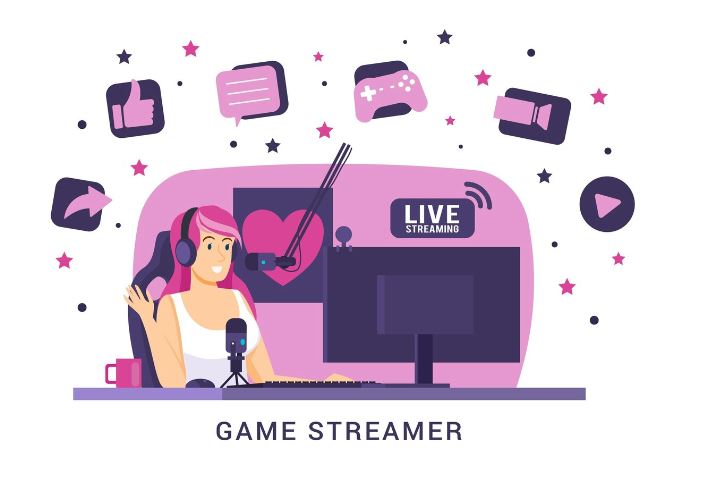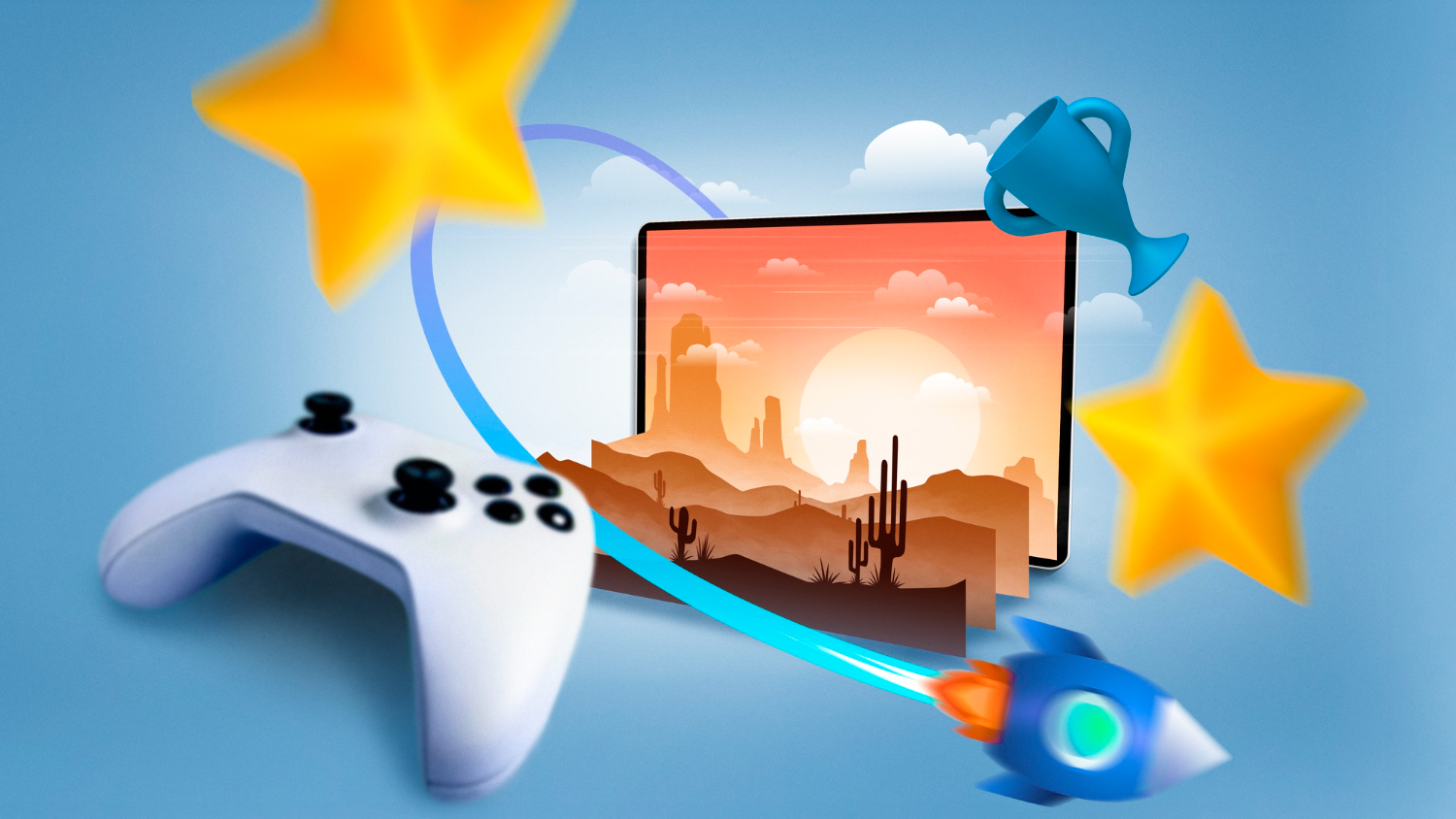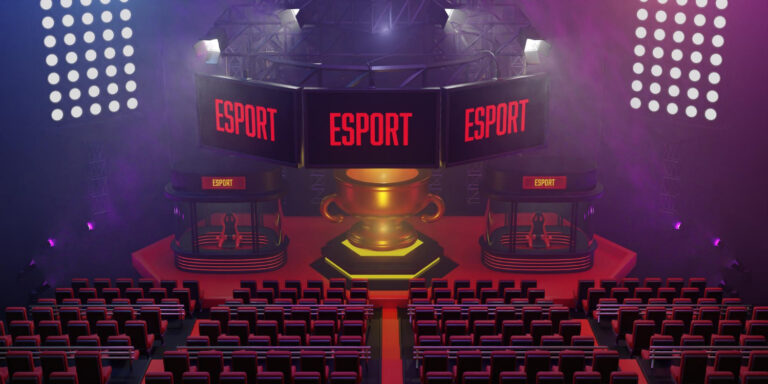Esports has taken the world by storm, transforming gaming into a legitimate professional arena where players can turn their passion for games into lucrative careers. What started as a niche hobby has now evolved into a global phenomenon, with millions of fans, massive tournaments, and prize pools that rival traditional sports. But what exactly is esports, and what’s driving its unprecedented growth? Whether you’re new to the scene or a die-hard fan, here’s an in-depth look into the world of esports, its growth, key players, and what’s next for competitive gaming.
What is Esports?
Esports, short for electronic sports, is organized competitive video gaming where individual players or teams face off in popular games such as League of Legends, Fortnite, Counter-Strike: Global Offensive (CS: GO), Dota 2, and Overwatch. Competitions are often streamed online or hosted in large arenas, drawing crowds of fans eager to watch players showcase their skills. Esports events range from small, community-driven tournaments to global championships with millions in prize money.
The Growth of Esports: Key Drivers Behind the Phenomenon
The growth of esports has been remarkable, with the global esports market projected to surpass $1 billion in revenue, and it shows no signs of slowing down. Here are some of the main factors driving esports’ popularity:
- Online Streaming Platforms: Platforms like Twitch and YouTube Gaming have made it easier than ever to watch live gaming content. Millions of viewers can tune in to watch tournaments or even follow their favorite players’ day-to-day gaming adventures.
- Brand Sponsorships and Investment: Major brands, from Coca-Cola to BMW, have started sponsoring esports teams and events, bringing in significant funding and increasing legitimacy. This has allowed the esports ecosystem to grow with better facilities, training, and higher prize pools.
- Community and Fan Engagement: Esports fans are incredibly passionate, supporting their favorite teams and players much like fans of traditional sports. The ability to interact directly with players on social media or live-streaming platforms has fostered a loyal community around esports.
- Accessible Technology: With advancements in internet connectivity and affordable gaming setups, more people than ever can participate in gaming, either as players or spectators.
- Universities and Education: Many universities and colleges have started offering esports programs and scholarships, which help legitimize esports as a career path and encourage young players to join the scene.
Popular Esports Games: Top Titles in Competitive Gaming
While new games enter the esports scene regularly, a few titles have established themselves as mainstays in the industry. Here’s a look at some of the most popular esports games today:
1. League of Legends (LoL)
Developer: Riot Games
Genre: Multiplayer Online Battle Arena (MOBA)
One of the most popular esports games worldwide, League of Legends hosts an annual World Championship with millions of viewers and large prize pools. LoL’s team-based strategy and high skill ceiling make it a fan favorite.
2. Dota 2
Developer: Valve Corporation
Genre: Multiplayer Online Battle Arena (MOBA)
Dota 2 is known for its highly strategic gameplay and is the focus of The International, one of the most lucrative esports tournaments globally. With prize pools that can reach tens of millions, Dota 2’s competitive scene is both challenging and rewarding.
3. Counter-Strike: Global Offensive (CS: GO)
Developer: Valve Corporation
Genre: First-Person Shooter (FPS)
CS: GO has remained a staple in the esports world due to its straightforward but intense gameplay, where teams of terrorists and counter-terrorists battle it out. Its simplicity and competitive depth have kept it popular for years.
4. Fortnite
Developer: Epic Games
Genre: Battle Royale
Known for its colorful visuals and accessible gameplay, Fortnite has attracted both casual players and serious competitors. Its World Cup event in 2019 had a prize pool of $30 million, with a 16-year-old taking home $3 million for winning.
5. Call of Duty (CoD)
Developer: Activision
Genre: First-Person Shooter (FPS)
With regular game updates and high-profile tournaments, Call of Duty maintains a significant presence in the esports community. The Call of Duty League (CDL) is one of the most followed esports leagues globally.
6. Overwatch
Developer: Blizzard Entertainment
Genre: First-Person Shooter (FPS)
Overwatch’s unique hero-based gameplay adds a layer of strategy to the traditional FPS format. The Overwatch League (OWL) brings together teams from around the world, offering a structured, city-based approach similar to traditional sports leagues.
The Role of Esports Organizations and Teams
In the competitive gaming world, professional esports organizations recruit top players and form teams that compete in various tournaments. These organizations play a critical role in the ecosystem, providing training, management, and branding support. Some of the most well-known esports organizations include:
- Team Liquid: Known for its success across multiple games, including LoL, CS: GO, and Dota 2.
- Fnatic: A powerhouse team based in the UK with a strong presence in games like CS: GO and LoL.
- Cloud9: A North American organization known for its innovative approach and success in multiple games.
- FaZe Clan: Popular in games like CS: GO, CoD, and Fortnite, FaZe Clan has a significant fan following and a strong brand presence.
- G2 Esports: A European team with success in LoL, CS: GO, and Rainbow Six Siege.
Monetization in Esports: How Esports Makes Money
Esports is a multi-billion-dollar industry, and several revenue streams fuel its growth:
- Sponsorships and Advertisements: Brands partner with esports organizations and tournaments to advertise, bringing in substantial revenue.
- Merchandising: Esports teams sell branded merchandise, from jerseys to gaming accessories, fostering fan loyalty and generating income.
- Media Rights: Broadcasting rights for major esports events are sold to streaming platforms like Twitch and YouTube, and even to traditional networks.
- Ticket Sales: Many esports tournaments are held in large arenas, and ticket sales add another revenue stream for organizers.
- In-Game Purchases: Game developers often create in-game items and skins related to tournaments or teams, with a portion of sales going to the esports organizations.
The Impact of Esports on Culture and Society
Esports has moved beyond gaming and become a significant part of mainstream culture. Here’s how it’s impacting society:
- Career Opportunities: Esports has created jobs not only for players but also for coaches, analysts, marketers, and broadcasters.
- Global Connections: Gamers from all over the world connect, compete, and collaborate, breaking down cultural and language barriers.
- Influence on Pop Culture: Esports personalities have become influencers, shaping trends in gaming, fashion, and digital media.
- Educational Initiatives: Schools and universities are creating esports programs, helping students develop skills in teamwork, strategy, and digital communication.
The Future of Esports: What’s Next?
Esports is constantly evolving, and its future is filled with exciting possibilities:
- VR and AR Integration: As technology advances, virtual reality (VR) and augmented reality (AR) are likely to become part of esports, creating new immersive gaming experiences.
- Further Professionalization: As esports grows, there’s a push to make it more structured, with standardized contracts, health benefits, and fair salaries for players.
- Expansion into New Games: Games such as Valorant and mobile games like Mobile Legends are gaining traction, adding diversity to the esports landscape.
- Greater Mainstream Recognition: Esports may eventually be recognized as an Olympic sport, further boosting its legitimacy and exposure.
Conclusion: Esports—More Than Just Gaming
Esports has evolved from a niche hobby into a global industry that combines gaming with entertainment, community, and competition. As more players, fans, and investors join the esports ecosystem, it continues to redefine what it means to be a professional athlete. With technology driving new innovations, esports shows no signs of slowing down. For anyone passionate about gaming, there’s never been a better time to get involved, whether as a player, fan, or professional. The future of esports is bright, and its impact on our culture and economy will only grow from here.
Frequently Asked Questions (FAQs)
1. Can anyone become a professional esports player?
Answer: While anyone can aspire to play professionally, it takes years of practice, dedication, and strong skills to compete at the highest levels. Many professional players start young and train rigorously to refine their abilities.
2. How do esports players make money?
Answer: Esports players earn money through tournament winnings, team salaries, sponsorships, streaming, and content creation. Top players often have multiple income streams, making esports a viable career path.
3. Do universities offer scholarships for esports?
Answer: Yes, many universities now offer scholarships for esports players, similar to traditional sports scholarships. These programs allow students to pursue education while training in esports.
4. What are the most popular platforms for watching esports?
Answer: Twitch, YouTube Gaming, and Facebook Gaming are among the most popular platforms for watching esports. Some events are also broadcast on traditional TV networks, depending on the region.
Esports is more than just competition—it’s a growing cultural movement with opportunities for players, professionals, and fans alike. Whether you’re interested in watching, playing, or working in the field, esports has something for everyone.

















